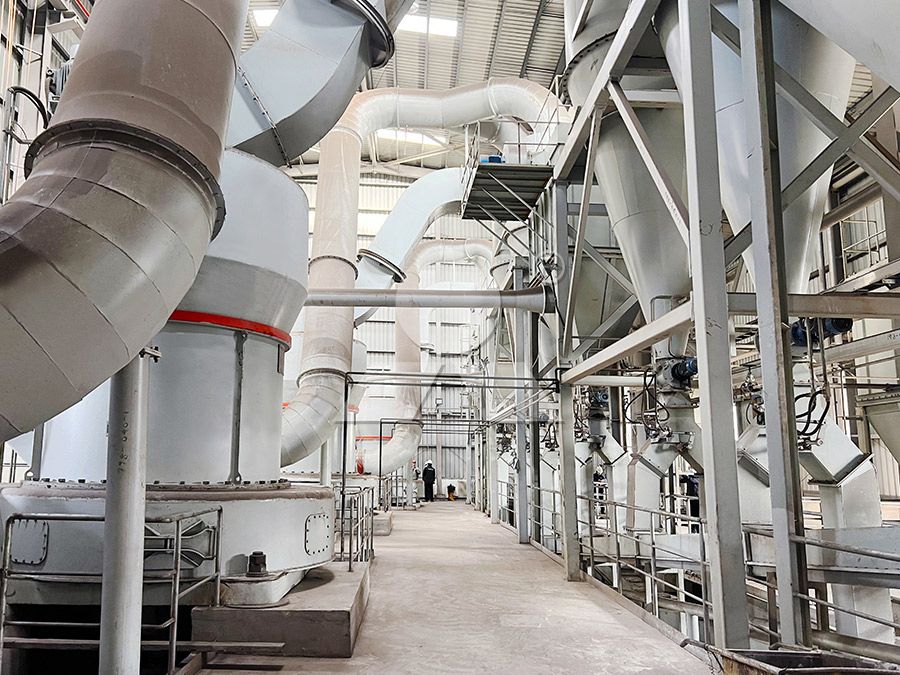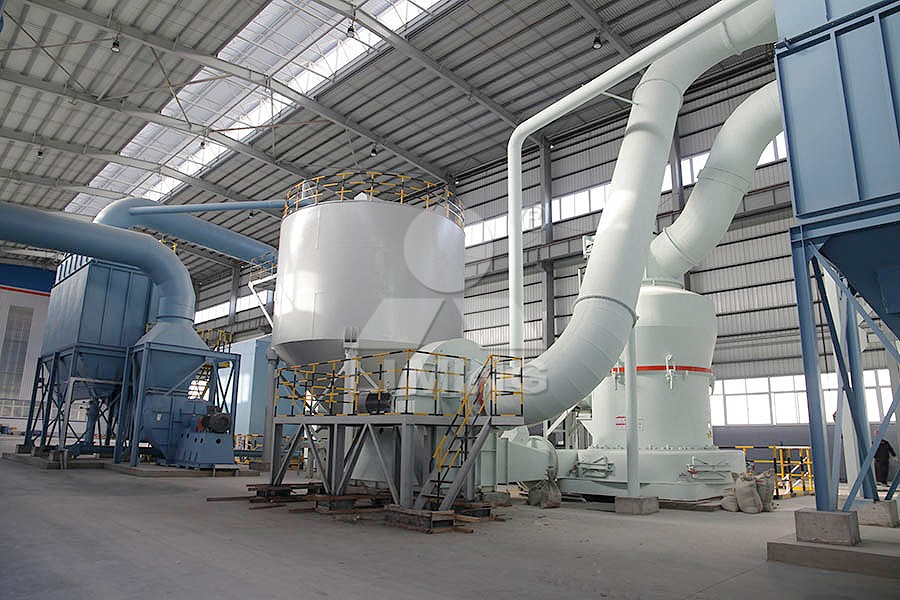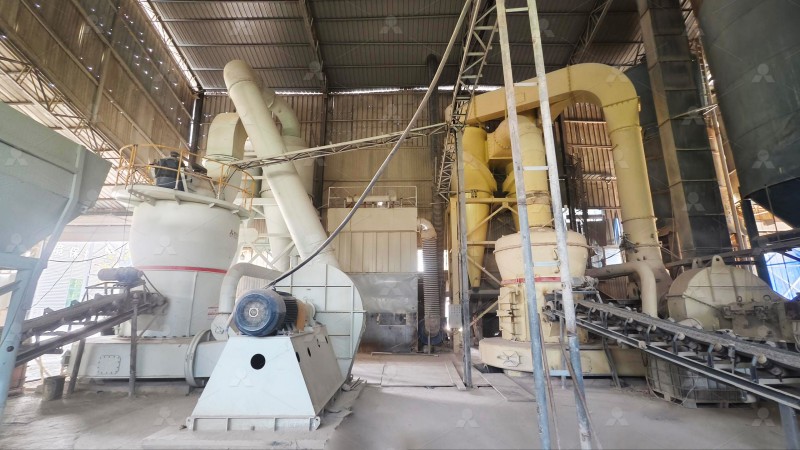High Efficiency Raymond Mill for Industrial Grinding | Liming Machinery
We provide a wide range of mills — including Raymond mill, trapezoidal mill, vertical mill, ultrafine mill, and ball mill, obtained ISO9001 international quality certification, EU CE certification, and Customs Union CU-TR certification. Suitable for processing minerals such as limestone, phosphate, quicklime, kaolin, talc, barite, bentonite, calcium carbonate, dolomite, coal, gypsum, clay, carbon black, slag, cement raw materials, cement clinker, and more.
The discharge range of these mills can be adjusted to meet specific processing needs, typically from 80-400 mesh, 600-3250 mesh, and can achieve the finest particle size of up to 6000 mesh(D50).
If you are looking for a reliable grinding solution to turn stone or minerals into fine powder, please feel free to contact our online customer service.
High Efficiency Raymond Mill for Industrial Grinding
In today’s competitive industrial landscape, achieving optimal grinding efficiency while maintaining cost-effectiveness and environmental compliance remains a significant challenge for many operations. The evolution of grinding technology has brought forth advanced solutions that address these concerns, with Raymond Mill systems standing at the forefront of industrial grinding innovation.

Traditional grinding methods often struggle with energy consumption, particle size consistency, and operational costs. Modern Raymond Mill technology, however, has overcome these limitations through sophisticated engineering and intelligent design principles. These systems deliver precise particle size distribution while significantly reducing power consumption compared to conventional grinding equipment.
Advanced Grinding Technology for Diverse Applications
The versatility of contemporary Raymond Mill systems enables processing of various materials including limestone, calcite, dolomite, barite, talc, and petroleum coal. This adaptability makes them indispensable across multiple industries from construction materials to chemical production. The key to this versatility lies in the innovative grinding chamber design and precision separation systems that maintain consistent output quality regardless of material characteristics.
Modern Raymond Mills incorporate intelligent control systems that automatically adjust operational parameters based on material feed rate and desired fineness. This automation not only optimizes performance but also reduces the need for constant operator intervention, leading to more consistent product quality and reduced labor costs.

Beyond Traditional Raymond Mill: Advanced Grinding Solutions
While traditional Raymond Mills continue to serve many applications effectively, operations requiring ultra-fine powders should consider more advanced solutions. For these demanding applications, Liming Machinery’s MW Ultrafine Grinding Mill represents a significant technological advancement.
The MW Ultrafine Grinding Mill processes materials with input sizes of 0-20 mm and capacities ranging from 0.5 to 25 tph. This machine is specifically engineered for customers requiring ultra-fine powder production, featuring an efficient pulse dust collector and muffler system that minimizes environmental impact. Its innovative design includes higher yielding capacity with lower energy consumption – achieving 40% higher production capacity compared to jet grinding mills with system energy consumption reduced to just 30% of conventional systems.
Another exceptional solution for precision grinding applications is the LUM Ultrafine Vertical Grinding Mill, which processes input materials of 0-10 mm with capacity ranging from 5-18 tph. This advanced system integrates German powder separating technology with Taiwan grinding roller innovations, delivering superior grinding efficiency and product quality for superfine dry powder production.
Environmental Considerations and Operational Efficiency
Contemporary industrial grinding equipment must address environmental regulations while maintaining productivity. Modern Raymond Mill systems achieve this balance through integrated dust collection systems, noise reduction technologies, and energy-efficient operation. The closed-system design prevents material loss and contamination while ensuring operator safety and environmental compliance.
The economic benefits extend beyond initial investment considerations. Reduced maintenance requirements, longer component lifespan, and lower energy consumption contribute significantly to the total cost of ownership. Advanced lubrication systems and wear-resistant materials further enhance operational reliability, minimizing downtime and maintenance costs.

Future Trends in Industrial Grinding
The trajectory of grinding technology continues toward greater automation, energy efficiency, and precision control. Integration with Industry 4.0 technologies enables predictive maintenance, real-time performance optimization, and remote operational monitoring. These advancements promise even greater efficiency and reliability for industrial grinding operations in the coming years.
Frequently Asked Questions
Q: What maintenance requirements should I expect with a modern Raymond Mill system?
A: Contemporary systems are designed for minimal maintenance with features like external lubrication systems that allow operation without shutdown. Regular inspection of grinding components and periodic checks of the separation system are typically sufficient to maintain optimal performance.
Q: How does the MW Ultrafine Grinding Mill achieve higher efficiency compared to traditional systems?
A: The MW Mill incorporates newly designed grinding curves of the grinding roller and ring, enhancing grinding efficiency significantly. Its cage-type powder selector using German technology increases separation precision, while the absence of rolling bearings and screws in the grinding chamber eliminates common failure points.
Q: What environmental benefits do these grinding systems offer?
A: Modern systems feature efficient pulse dust collectors that prevent dust pollution during operation. Additionally, silencers and noise elimination rooms reduce operational noise, ensuring compliance with environmental standards while maintaining worker comfort and safety.
Q: Can these grinding systems handle variations in material hardness and composition?
A: Yes, advanced control systems allow adjustment of grinding pressure and operational parameters to accommodate different material characteristics. The hydraulic systems in mills like the LUM Ultrafine Vertical Grinding Mill enable precise control for materials of varying hardness.
Q: What after-sales support is available for these grinding systems?
A> Liming Machinery provides comprehensive technical services and original spare parts to ensure worry-free operation. Their support covers everything from initial installation to ongoing maintenance and operational optimization.
